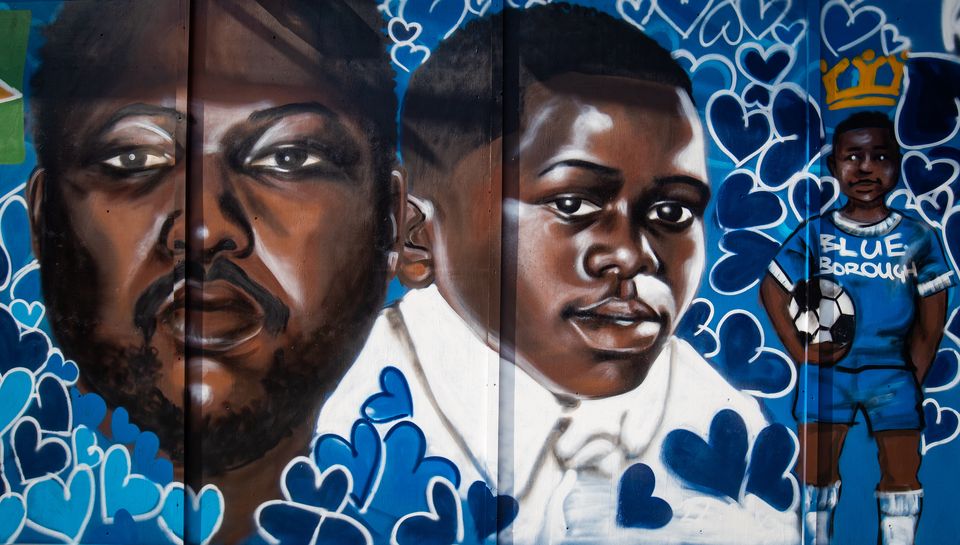Two Metropolitan Police officers who denied having heard a restrained man say “I can’t breathe” before he died in police custody have been cleared of gross misconduct.
Pc Danielle Barnes and Pc Elizabeth McAleenan were accused of having failed to ensure the welfare of a member of the public after Kevin Clarke, a relapsing paranoid schizophrenic, died in police custody at Lewisham Hospital in 2018.
It was also alleged Pc Barnes and Pc McAleenan gave evidence that “was both dishonest and lacked integrity” at an inquest into Mr Clarke’s death in October 2020, which found the decision by police to use restraints on Mr Clarke contributed to his death.
But a misconduct panel ruled on Wednesday there was not enough evidence to prove either officer had heard Mr Clarke say the words “I can’t breathe” and failed to take action.
Following the hearing, Cyrilia Davies Knight, a lawyer on behalf of Mr Clarke’s family, said they were “deeply disappointed” by the decision.
Catherine Elliott, the legally qualified chairwoman of the panel, told the misconduct hearing sitting in central London: “The panel were not able to conclude that the words ‘I can’t breathe’ were uttered by Mr Clarke.
“The panel finds it not proved that either Pc Barnes or Pc McAleenan heard Mr Clarke say that he could not breathe.
“It follows that there cannot be a misconduct finding.”
A mural commemorating Kevin Clarke, who died after he was restrained by Metropolitan Police officers on 9 March 2018, in Lewisham, South London (Aaron Chown/PA)
Mr Clarke died on March 9 2018 following an incident in the Polsted Road area of Catford, south-east London in which the 35-year-old was found lying on the ground in a playing field, acting strangely.
Having assessed the situation as a “serious mental health episode”, officers decided to put Mr Clarke into handcuffs and leg restraints.
Mr Clarke lost consciousness as he was being carried to an ambulance and later suffered a cardiac arrest.
In October 2020, an inquest jury ruled the police decision to restrain Mr Clarke “escalated the situation to a medical emergency”, adding that it was “highly likely” that at least one officer heard Mr Clarke say “I can’t breathe” on more than one occasion.
The panel chairwoman Ms Elliott told the misconduct hearing the inquest’s findings were “correct” and “not in dispute”.
She said: “It would appear the decision to use the restraints was that he (Mr Clarke) was making attempts to stand up, and the fear for his safety grew.”
Commenting on the body-worn camera footage of the incident, which was played at the misconduct hearing on Monday and Tuesday, Ms Elliot added: “There seems to have been a change after handcuffs and restraints were applied.
“Once he (Mr Clarke) is in hand and leg restraints, his behaviour was more challenging.
“On a couple of occasions, it is possible that the words ‘I can’t breathe’ were said.
“His speech was so muffled that one couldn’t be confident of this.”
She added that there was “nothing to indicate” that any of the officers present at the scene heard these words, and that it would be “extremely unusual if any of these officers had heard these words and simply ignored them”.
Wendy Clarke and Tellecia Strachen, the mother and sister of Mr Clarke, sat in the public gallery as the hearing was brought to a close.
Speaking after the end of the hearing, Ms Strachen said she was “extremely disappointed” by the outcome, which comes more than six years after the death of Mr Clarke.
She said: “There is something wrong with the system – the system is broken and it’s not fit for purpose.
“It’s disrespectful to my brother as a human being – I’m extremely angry, disappointed, and I think it’s a waste of time.”
Following the hearing, Ms Davies Knight said: “The family are deeply disappointed by the panel’s decision, which accepted the two officers did not hear Kevin Clarke say ‘I can’t breathe,’ during his restraint.
“This finding stands in stark contrast to the findings of 11 jurors at the inquest, who unanimously agreed that Kevin repeatedly said ‘I can’t breathe’ during his restraint, and ‘that at least one officer would have heard him say I can’t breathe at least once’.
“Sadly, the family had no expectations of justice as they believe this system is clearly not designed to deliver accountability, particularly where there is a death in police custody.
“This outcome, while devastating for the family, was sadly, in their opinion, inevitable.”
